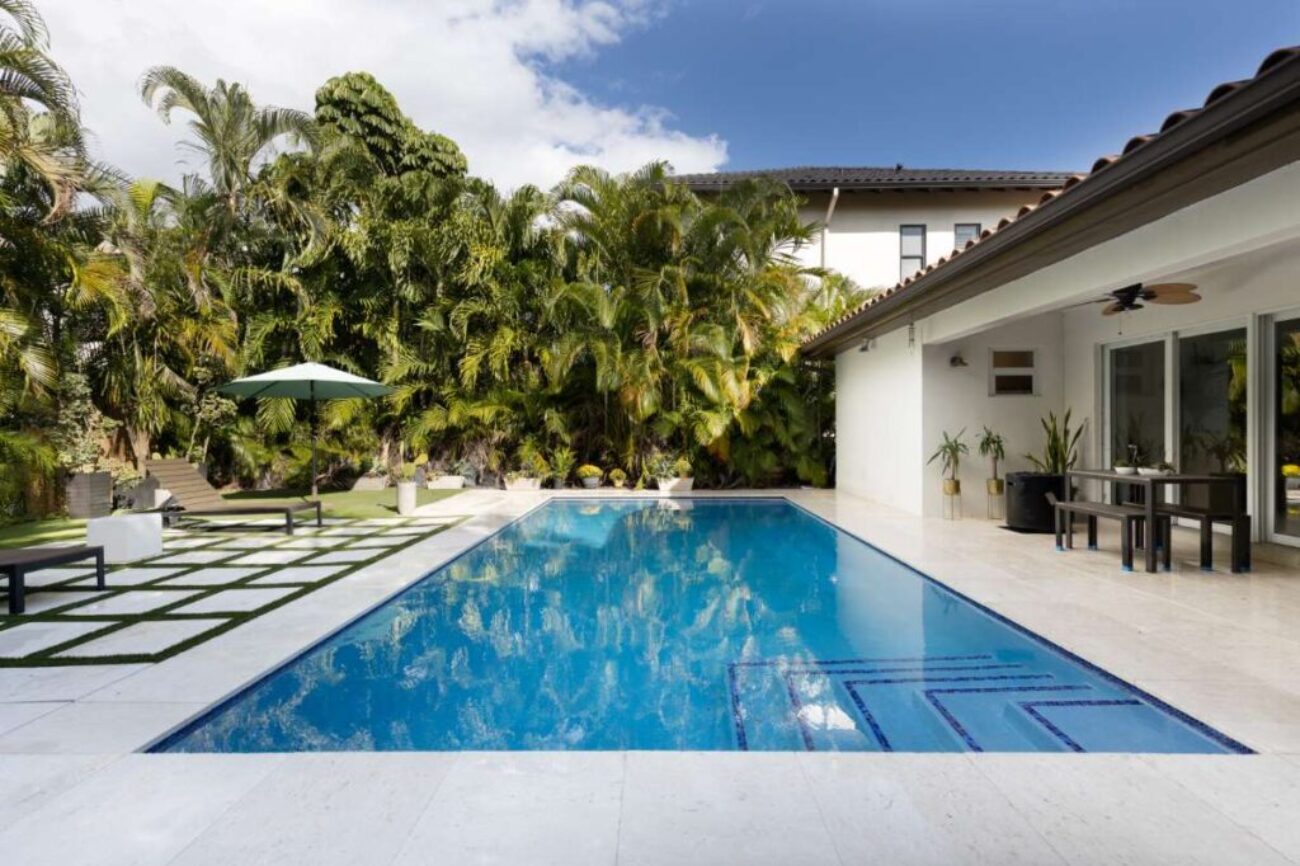Discover how to determine if a pool route is overpriced and make an informed investment in the pool maintenance industry.
How to Know If a Pool Route Is Overpriced
Understanding whether a pool route is overpriced is essential for potential buyers in the pool maintenance industry. With the increasing demand for pool services, entrepreneurs are keen to take advantage of the lucrative opportunities in this sector. However, navigating the market can be tricky. This article will delve into the critical factors that help you assess the value of a pool route, ensuring you make a smart purchase decision that aligns with your financial goals.
Introduction
The pool service industry is booming, with an ever-growing demand for maintenance and cleaning services. As more homeowners invest in pools, the need for reliable pool service providers has never been higher. For aspiring entrepreneurs and existing business owners, purchasing a pool route can be an attractive opportunity for immediate income and stability. However, with various options available, it’s crucial to determine if a pool route is fairly priced or overpriced. This post will guide you through the essential criteria and strategies to evaluate the worth of a pool route effectively.
Understanding the Market Value of Pool Routes
To evaluate whether a pool route is overpriced, you must first understand how market value is determined. Various factors influence the pricing of pool routes, including location, customer base, and service contracts. The location plays a significant role; routes in high-demand areas with a larger number of pools will typically command higher prices. It’s essential to research the local market dynamics, including the competition and demand for pool services.
A good starting point for evaluating a pool route’s market value is analyzing similar routes. Look for comparable pool routes for sale in your desired area and assess their pricing. Websites like Pool Routes for Sale allow you to view current listings and compare them with the route you are considering. Additionally, consulting with a pool business broker can provide valuable insights into market trends and pricing norms.
Analyzing the Customer Base
An established customer base is one of the most valuable assets of any pool route. When evaluating a pool route, pay attention to the number of active clients and the reliability of their contracts. A route with a loyal customer base ensures immediate revenue and reduces the risk associated with business volatility.
Consider the average length of customer contracts and the rate of customer retention. If most clients have been serviced for several years, this indicates trust and satisfaction, translating to consistent income for you. On the other hand, if you notice a high turnover rate of clients, it may signal underlying issues with the service provided, making the route less attractive.
Evaluating the Revenue Potential
To determine if a pool route is overpriced, assess its revenue potential thoroughly. Request financial records from the seller and analyze the income generated over recent years. Look for trends in revenue growth or decline; a profitable route should show a consistent upward trend, while declining revenues may suggest overpricing.
Also, consider the average service price per client and the frequency of service. Higher-priced services may allow for more profits, but they can also limit the customer base. Conversely, competitively priced services might attract more clients but impact the profit margins. An effective strategy is to calculate the price-to-earnings ratio, providing a clearer picture of the route’s profitability in relation to its price.
Inspecting the Condition of Equipment and Assets
The condition of the equipment used in the pool route also affects its overall value. Inquire about the age and maintenance history of pool cleaning tools, vehicles, and any additional assets included in the sale. Assess if these assets are in good working condition or if significant repairs or replacements will be necessary soon.
Investing in a route with outdated or poorly maintained equipment can lead to unexpected expenses, diminishing the potential returns on your investment. If the seller offers equipment warranties or recent service records, it could indicate a well-maintained route, justifying a higher price. Conducting a thorough inspection can help you gauge whether the asking price aligns with the condition and value of the equipment involved.
Understanding Contracts and Agreements
A pool route often comes with service contracts that can significantly impact its value. Review all agreements associated with the route, including terms of service, payment schedules, and any clauses regarding renewal or termination. A route with long-term contracts can provide security and predictability in your revenue stream, making it more appealing and potentially justifying a higher price.
Conversely, if the contracts are short-term or have unfavorable terms, this could indicate a riskier investment. Ensure you understand any obligations tied to these contracts, as they could influence your operational flexibility post-acquisition. Additionally, inquire if the contracts are transferable and if existing clients are aware of the sale, as client retention is crucial for a seamless transition.
Consulting with Industry Experts
Engaging with industry experts, particularly pool business brokers, can provide invaluable insights into the market and pricing strategies. Brokers specialize in evaluating pool routes and can offer guidance on determining fair market value. Their experience and access to industry data can help you avoid overpaying and make informed decisions.
Moreover, brokers can assist in negotiating offers and terms with the seller, ensuring that you get the best deal possible. When considering a pool route for sale, don’t hesitate to utilize these resources, as they may save you money and enhance your understanding of the business landscape.
Conducting a Risk Assessment
Before making a purchase, conducting a risk assessment is vital. Consider potential risks associated with the pool route, such as seasonal fluctuations in demand, competition, and economic factors that could influence customer spending on pool maintenance services.
Look at industry trends and economic forecasts to gauge the long-term viability of the pool service sector in your chosen area. Understanding these factors will help you better assess whether the asking price of a pool route reflects its long-term potential or if it’s merely an inflated number based on current trends.
Comparing Multiple Opportunities
Instead of focusing solely on one pool route, consider comparing multiple opportunities to gain perspective on pricing structures in the market. By studying various listings on websites like Pool Routes for Sale, you can identify patterns in pricing, customer bases, and service offerings. This broader perspective will help you understand the average price range for routes similar to the one you are considering.
By comparing different routes, you may find that some offer better value than others based on your unique goals and financial situation. This approach not only prepares you to negotiate effectively but also guards against the pitfalls of impulsive buying.
Understanding Financing Options
Financing options can significantly influence the affordability of a pool route. Many brokers, including those at Tower Business Brokers, Inc., offer flexible financing plans that cater to various budgets. Understanding these options allows you to evaluate the total cost of ownership, including interest rates and repayment terms.
Before committing, it’s wise to calculate monthly payments and ensure they align with your projected cash flow from the pool route. Ensure you explore all available financing options, as a flexible payment plan could make an otherwise overpriced route more manageable within your budget.
Preparing for Integration and Management
If you decide to proceed with the purchase, prepare yourself for the integration and management of your new pool route. This includes understanding operational processes, managing staff, if applicable, and ensuring customer satisfaction. A sound management plan can maximize the route’s profitability, making it easier to justify your investment.
Consider reaching out for training or support services offered by companies like Tower Business Brokers, Inc.. Access to comprehensive training can significantly enhance your ability to manage the route effectively, ensuring a seamless transition and sustained growth.
Negotiating the Price
Armed with your research and analysis, approach the seller to negotiate the price of the pool route. Present your findings regarding market value, customer base, contract conditions, and equipment status to justify your offer. An informed negotiation can lead to a more advantageous deal, ensuring you are not overpaying for the route.
It’s important to remain flexible during negotiations and be open to compromise. Sellers may be more willing to adjust their asking price if you can demonstrate a legitimate rationale for your offer.
Conclusion
Evaluating whether a pool route is overpriced requires thorough research and a keen understanding of the market. By analyzing the customer base, revenue potential, contract terms, and equipment conditions, you can make informed decisions that align with your business goals. Engaging with industry experts and comparing multiple opportunities further enhances your ability to negotiate a fair price.
In the growing pool maintenance industry, making informed decisions is crucial for long-term success. If you’re considering investing in a pool route, explore the options available today at Pool Routes for Sale. The right route can provide immediate income and a solid foundation for your entrepreneurial journey.



